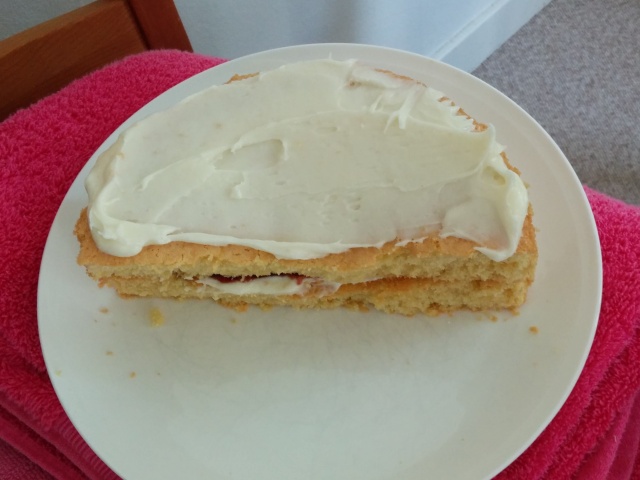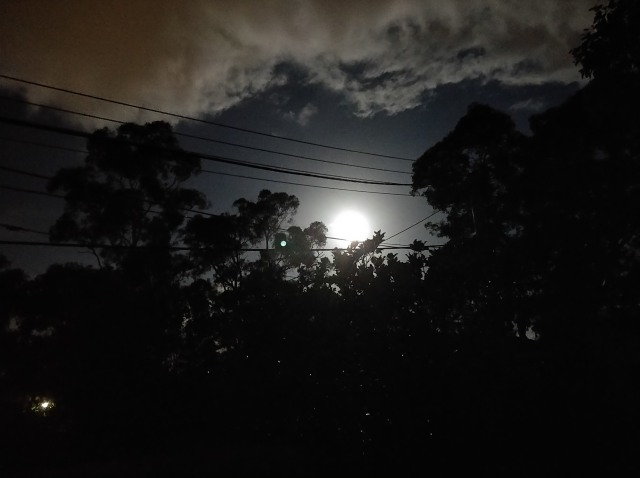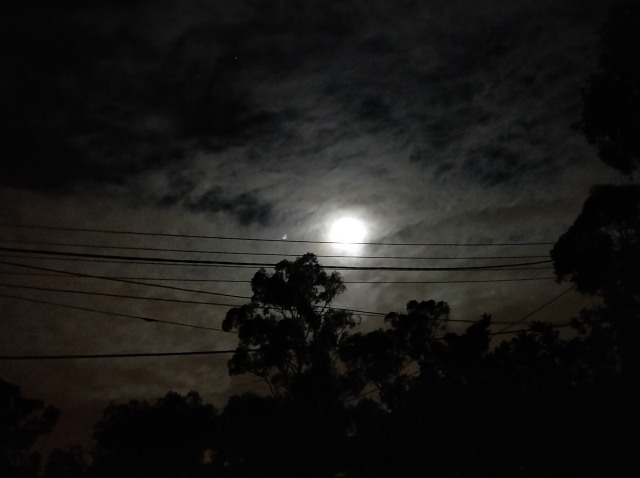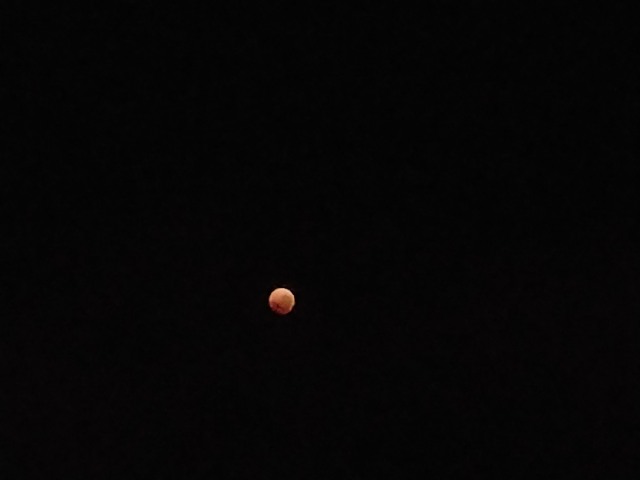This is the prologue and first two chapters of my latest book. After years of estrangement, three siblings return to their family home after their mother’s death. The novel explores the effect of a traumatic childhood event on each child. They only have three days in which to make sense of the past and the conclusions they reach will shape the whole of their future.
WHEN WINTER COMES
PROLOGUE
I hated Bournemouth when we first arrived, leaving behind us everything I had ever known. There was a stream in our Shropshire garden with rainbow trout drifting through the weedy shallows. A group of minnows nestled under the far bank, flashing silver and splintering like a drop of mercury each time I poked them with a stick but stupidly regrouping almost at once. In the field above our house was an orchard full of damson trees, my Grandfather’s particular favourite. The oval fruit gleamed among the acid green leaves like ripe amethysts and my mother made pots of glowing, purple jam.
Until, without warning, my father returned from a business trip and told us we were moving to Bournemouth, a distant but exciting town by the sea. I had been stung by a jellyfish on holiday the previous year and now harboured a deep mistrust of oceans and their treachery, but my father, flushed with the triumph of a new and better paid job, produced fat sticks of bright pink rock, miraculously shot through in shaky green letters with, ‘A present from B’mth’. I was four years old and had no real conception of the future or ‘forever’ so I sat quietly and listened to the excited talk around me as the peppermint sugar slowly dissolved on my tongue.
I hated that first winter in Bournemouth. I hated the smug looking people and the busy traffic and smells of a town after the lazy scents of the Shropshire fields. Even my new school was less friendly. We had grown radishes at my Shropshire preschool and watched the shearers outside our window in the spring. I had waited eagerly for each sheep to kick its tormentor and escape but they never did. We even laid bets on it and I lost a whole week’s pocket money to Jamie Marshall when the last knotted fleece had been safely laid out on the grass. Bournemouth appeared to be singularly lacking in sheep and wrapping balloons in papier-mâché was the most exciting thing we had done in preschool. Even then, I popped mine before it was properly dry and was forced to endure the laughter of my strange new classmates for the whole afternoon.
That first winter in Bournemouth, our family walked alone by the sea because we were strangers. At first, I kept a wary distance, watching the grey waves crash against the promenade, foam gleaming under a watery British sun. I missed the sea I had known before, where the bright green heads of wheat, shining after the light spring rain, had bent their heads to the warm breeze.
The spring was less lonely, as I made new friends and grew familiar with the maze of roads, of which our house was the centre. There was an apple tree in our new garden which draped itself in curtains of white blossom in May. The fruit would never substitute for the tart headiness of the damson but was satisfyingly streaked with red and held the promise of apple pies. One of the branches was low enough to climb and I rode it often, its head always turned hopefully towards Shropshire, but however many hours we galloped through the counties of England, we never quite reached home and hunger always drew us back through the woods and fields to Bournemouth.
I wondered what my birthday would feel like in our new house. Everything around us was now so different that I worried no one would recognise the day. Despite my fears, it arrived at last, as clear and hot as only the birthday of a five-year-old can be. We ate strawberries in the garden and I fired my new bow and arrow wildly at my brother until he collapsed, mortally wounded, onto the hot grass. He would usually push my face into the dirt until I apologised but there was an unwritten rule for birthdays and he honoured the code.
And later, as the scented dusk settled around our heads and mosquitoes drifted downwards through the cooling air, my father told me he had a surprise for me and I should bring my cardigan. We set off up the hill together, my hand gripped tightly in his. Music curled through the warm darkness above us and bright lights danced among the trees.
I had never been to a circus. The tent was already hot and the lights dazzling. Magical people flew to and fro above my head and a pack of glossy poodles formed a pyramid and barked the notes of the national anthem so perfectly, I wondered why no one stood. Shining white horses galloped past in perfect formation, their saddles studded with real jewels, a shimmering pink figure skipping lightly from one to another.
Through the noise and brightness, one figure stood out more vividly than any other. His name was Rocco and he swung into the ring on a drum roll and dropped neatly into the elephants’ water bucket. His mouth drooped mournfully with each new catastrophe. He piled his cans of paint far, far too high and I shrieked at him to be careful but when his pyramid crashed down, I screamed at him to rebuild it.
I know that my father carried me home that night but I have no memory of it and was deeply puzzled to wake the following morning in my pyjamas. At breakfast, I tried to convey the wonders of the previous night but my incoherence was annoying and my brother soon told me to shut it. His amiable mood had vanished with the sunset. I would have been far more uncomfortable if it had not.
My sixth birthday arrived more quickly than I had bargained for. It was in Bournemouth that I first learned to measure time through the changes in the sea. The water, a soft cornflower in early summer, grew brighter and livelier with the approach of autumn. By Christmas, it had turned the same grey-green as the lead sheets on our church roof and swelled menacingly around the pier. I liked to terrify myself by leaning over the railings to watch the ominous suck of the undertow. My favourite part of the year was also the coldest, as the water faded to palest emerald under a hard winter sky and rippling waves slapped playfully against the iron struts. Within weeks, it would be spring and I would once more be counting the days until my birthday.
That day was also hot and still, the only difference being my newfound awareness of the passing of a year. As evening drew near, I hung around my father in anxious silence until at last he smiled and raised an eyebrow and I ran to fetch my cardigan.
This year, the circus was even better. I was a year older and able to stay awake for longer. The horses were still light as drifting snowflakes, the lady in pink even more entrancing. Rocco, as anticipated, was perfection, from the first roll of the drums to his final arrest by the ringmaster. When he tipped his stack of paint cans over himself and regarded us with rueful bewilderment, I laughed even harder than before. When he stretched up to replace them and his trousers slipped down, revealing tattered, scarlet-spotted shorts, my father threatened to take me home unless I could be quiet.
The circus became a fixture in my yearly calendar, the one event I need not share with the rest of my family. My father and I climbed the hill together each year. My legs grew longer and the colour of my cardigans varied but the circus, more especially Rocco, remained gloriously the same. As double figures approached, my father suggested that I expand my birthday repertoire to include new places and I agreed, although not without a mild feeling of regret. I had always created my own private structures and calendars and it was hard for me to move on. There was an unspoken agreement that the rest of the family would now join us, an agreement I hugely resented, and as my twelfth birthday approached, I struck for the right to reclaim both the circus and my father. After months of my irritable persistence, he agreed.
The tent was as hot as ever and still scented with sawdust and candyfloss. The first act was new – a family of contortionists who appeared to be innocent of bones, but I knew the second act very well. A blast of music ripped through the tent and my beautiful white horses galloped in. A stout lady in a tight, netted dress jumped breathlessly from one to the other. Their saddles were festooned with chunks of coloured plastic and in need of a clean. My father stared intently at the ring, his lips moving, as though in prayer. The horses galloped out again to loud applause and I knew who must come next. When his drum roll sounded, I jumped from the bench and fled.
My father threaded his way carefully between the seats and joined me outside. He laid a hand on my shoulder as we stood and listened to the muffled cheers and laughter. After a minute, he turned and strode away across the field and I followed him. We walked home together in silence through the darkened streets, alternately swallowed by the shadows and illuminated by the shining patches beneath the street lamps.
Chapter One
The funeral over at last, we scatter along the path, jackdaws beneath spiky black umbrellas. I slide between clusters of mourners, hoping no one will notice me, dreading the detailed questions that would expose me as an imposter.
The vicar appears to recognise me as I walk past. His smile is pleasant, standard-issue Anglican and he has the obligatory slight stoop. He told the congregation he had never met the deceased but had talked to neighbours and friends since her passing. He carefully refrained from using the word family, the omission so blindingly obvious that I wondered why no one stood to point an accusing finger at the three of us. Of course he had not known her. Mum was never one for organised weekly religion. She was simply one for doing things properly, which accounts for the meaningless ritual we have just been forced to endure.
She took us to church on Christmas Eve and Mothering Sunday and again on Easter Sunday, after which we hunted in our garden for the eggs she hid in exactly the same places each year. That was the extent of her own church going until the following Christmas but she dispatched me to Sunday school long after Cath and Daniel had won their independence. I was left to walk there resentfully and alone and to sulk and complain throughout our Sunday lunches. My arguments ranged from a stridently-assumed atheism I did not actually feel, to chippy accusations of parental hypocrisy.
I finally won an amnesty from Dad, on the condition I did not disturb his Sunday lie-ins, dearly cherished after a week of pre-dawn rising, and accompanied my mother to church whenever she saw fit. This was fine with me as I suspected, quite correctly, that her sense of fitness would never extend beyond those three services. I would never admit it but I secretly enjoyed walking three paces behind Mum on a frosty Christmas Eve and the melodic bells which summoned worshippers through the sweet Easter air, chimes heralding the spring, if not necessarily the resurrection.
I was more ambivalent about Mothering Sunday and hugely embarrassed by the public presentation of daffodils. Our parents hated the Americanism of Mother’s Day and forbade its use, even though the stiff Mothering Sunday cards were more appropriate to a funeral than a celebration. The obligation lifted somewhat when I left home and could compromise with spring landscapes and cards without poems. It struck a small blow for the inner child without resorting to the knockout punch that would demean us both. Dad only ever went to church on Mothering Sunday, after which he cooked the Sunday roast, rather inefficiently, and we three cleaned up afterwards. It was the only day on which we might wash up unsupervised, Mum being so finicky and precise in her kitchen, but she had a great sense of occasion.
Cath and Daniel sat alongside me during the funeral, like three magnets, all with opposing poles. As the service creaked past, I worried I might slide down the slippery pew away from them and fly out into the aisle. Watching the three of us now, standing together so separately on the church path, the vicar seems to sense something of our relationship. He winds up his chat and shepherds Cath expertly into the first funeral car. I step past him on a black wave of resentment, ignoring the offer of his damp hand. I am still angry that any stranger should speak so urbanely at Mum’s final service, skating slickly over her life and closing its final cover. Perhaps I should reserve some of that anger for those who shared her life and home and still knew nothing of her. Cath does not shift her gaze from the floor as the car slides silently from the kerb and drifts towards the crematorium.
Three hours later, I watch the rain trickle in dreary streaks across the living room window. The gaggle of strangers has thinned at last, full of under-cooked pastry and gory details. The women were the worst. Their sympathy, in the cases of those who actually knew me, was underpinned by a faint, lavender-scented disapproval. I could not even place most of them; they looked so similar. They even smelled the same.
By four o’clock, no one is left except our family and Mum’s best friend, Cynthia, who has watched me grow from a small child into whatever it is I have become. I often suspect that she preferred the earlier version. Dad’s sister Bella hovers in the doorway, planning her escape. She has been determined to remain a forty-something redhead for as long as I can remember. I add the dyed hair to the list of mental grudges I have always held towards her. It is faintly possible that Dad liked her but she and Mum never got along and we children dreaded the ritual Sunday lunches, with their charged, almost menacing atmosphere.
I start to collect up the plates but Cynthia notices me and comes over. ‘You mustn’t do that, my love. Leave it all to me.’
She pulls me towards her and I freeze at the contact before I remember the thousands of similar embraces she has given me since childhood. I relax against her and she pats my shoulder approvingly. ‘You’ve just lost your Mum. You can cry,’ she orders. Surprisingly, I almost do.
We carry the plates to the kitchen, where I look around despairingly at the mess. ‘Why didn’t we book some proper caterers? They’d have cleaned up and the food would have been so much better.’
‘She’d have hated that. She’d have said it was a waste of money.’ She turns the subject smoothly. ‘How long are you staying, my darling?’
My face puckers into a predictive frown, simply thinking of the weekend ahead. ‘Only until Monday morning. I have to help Cath and Daniel with Mum’s things but I really must get back to work next week. We’re opening a branch in Paris next month and I haven’t met the new buyers. I was planning to fly out there this weekend but they came here instead, seeing that …’
‘Goodness, you do have fun at work, Jen. I’d have loved a job like yours – travelling, meeting interesting people.’ Then, quickly enough to show her strand of thought, ‘How’s your social life? Anyone special yet?’
‘No one special,’ I say tightly and stare her down.
She takes the hint and moves on. ‘This will be a wonderful opportunity for the three of you to catch up. You don’t see each other very often these days, do you?’
Not very often means never and Cynthia knows it, but she was always the soul of tact, separating us so deftly at the height of our younger quarrels that we would all have sworn she had taken our individual side. I pull a mental face at the thought of spending a whole weekend in such close proximity to my siblings. We have long since shrugged each other off, much, I suspect, to Mum’s unexpressed distress. I wonder how she feels to see us all back under one roof, as she surely does. She has not left. Her presence still fills the place. We have opened the doors she always kept closed and the entire house is now scented with the ghosts of Chanel and lemon furniture polish.
Bella appears in the kitchen doorway. ‘I think we must leave now, Jennifer. Henry can’t cope with very much stress nowadays. He isn’t getting any younger.’ She bares her orange gums in amusement at the thought of Henry’s decrepitude and blows cheap sherry fumes directly into my face.
I allow a shade too much concern into my voice. ‘This must have taken a lot out of you, too. You’re three years older than Henry, aren’t you?’
She glares at me and twists her lips into a farewell grimace. ‘We’ll see you all soon, I have no doubt.’
I have not seen Bella in ten years and will be delighted if it is as long again. I remain outwardly polite. ‘Oh, you can count on it.’
She shepherds Uncle Henry towards the front door and I smile to myself, feeling mildly avenged for the years of wasted Sunday afternoons and the birthday cards with a, ‘Buy yourself something nice’ fifty pence piece slipped grudgingly inside.
Cynthia is watching me closely, her face unreadable. I shrug and mentally group her with the group of disapproving elderly women I have suffered all afternoon.
‘I’ll leave you to it, my love,’ is all she says but I melt instantly and wrap my arms around her. I think she understands. She hugs me back. ‘Bye, my poppet. Have a good weekend.’
‘You can count on it,’ I say again.
I bump my blue case up the stairs and pause outside my old room, wondering whether it will still recognise me. It has not seen me for over a year, when Mum was first diagnosed.
Cath is already inside the room, staring down into the garden and holding a piece of curtain against her cheek. I throw my case onto my bed and she spins around. ‘That’s not my case.’
‘No, it’s mine and this, in case you’ve forgotten, is my bed.’
‘You can’t sleep in this room,’ she says more quietly.
I raise my eyebrows. ‘Where do you suggest I sleep for the next three nights?’
‘I don’t really care. This is my room.’
The shell I so painfully acquired during my adult years was supposed to be impenetrable but it is splintering under her assault. I breathe deeply. ‘The last time I checked, which was four whole years after you left home, this was my room.’
Her face is contorted with an emotion I thought we had left behind, when the hair-pulling and neck-flicking subsided into an uneasy teenage truce. Apparently, I was wrong. I sling my pyjamas onto my bed and, for good measure, sit on them.
‘Does it really matter?’ she asks at last.
‘Not at all, so why don’t you get out?’
Daniel peers around the door, wearing a shabby backpack and half a beard. ‘God, here we go again.’
I stare at his face. ‘Why did you choose the week of the funeral to grow a beard? Mum would have hated it. You know that.’
‘Do I?’
He disappears and I turn back to my other fight to see that Cath has already tucked my pyjamas back inside my case and is fumbling with the zip.
‘What the hell?’ I say angrily.
Her face has turned an ugly pink. ‘You can easily sleep in Mum’s room for three nights.’
‘Why don’t you grab that room for yourself? It’s a symbol of authority and you can boss me just as well from there.’
‘Is it possible that you’re still this immature, Jennifer?’
‘Quite possible, so why not be the grown-up, Catherine?’
I am stunned by the speed at which the cracks are showing. The veneer of years and apparent adulthood has been completely stripped away, leaving two teenagers glaring at each other, with a string of ten-, nine- and eight-year-olds shadowed behind them.
I try again. ‘You’re the oldest. You ought to sleep in Mum and Dad’s room.’
‘Mum’s room,’ she corrects me at once.
‘She’d want you to sleep in there. She’d never have trusted me.’
‘Yes, she would.’
I smile, rather poisonously. ‘You can argue as much as you like but this door has no lock so you can’t keep me out. If you won’t leave, we’ll have to share. It’ll be just like old times.’
CHAPTER TWO
It was dark before the promised snow arrived. I watched from my bedroom window the whole afternoon and leaned out a dozen times to taste the frozen air on my hopeful tongue.
‘It’s too cold for snow,’ Mum said when I consulted her. She was wrestling with a brightly-coloured cookbook and refused to come to the kitchen window yet again.
I stood on the driveway in my socks, feeling the frost shock my toes into tiny balls. The afternoon was leaving the garden now, its exhausted grey light draining from the frozen air. Dusk hovered at the gate in a miasma of cold. Tiny ferns crept along the path to the house, matching the flowery splinters snaking across my bedroom window. At a silent signal, which only the birds could hear, a cloud of dark swooped towards me and I jumped, slid back into the light and slammed the door.
‘Who’s going outside?’ called a voice from the kitchen.
‘Just checking for snow,’ I called back.
‘Don’t you dare go outside again, Jennifer! It’s perishing. If you really have nothing better to do, you can lay the table.’
I slithered silently up the stairs before she could emerge to enforce this. I opened my bedroom window and gasped as the frozen vacuum burned a trail inside my lungs. Our neighbours never shut their curtains and their living room window tossed a glowing band of light across both gardens, throwing our blackened cabbages into relief where they squatted miserably in the biting frost. The latticed wooden trellis that Dad had built for his runner beans towered above them, casting the shadow of a gibbet.
I stretched my hand far out into the night and cupped my palm invitingly. Frozen dust trickled through the air and I drew back in disbelief. My palm sparkled for a second in the light and the spark was gone. I held out my hand once more, hardly daring to breathe. Frost tickled my palm and tiny diamonds twinkled at me like fairy lights, reminding me of Christmas, already two months past.
I ran downstairs and hurled myself into the kitchen, where Mum was wrestling a long, shallow dish into the oven.. She looked up. ‘What do you think of tonight’s dinner?’
I glanced at the chilly lumps of raw meat and nodded hypocritically. ‘Looks great. It’s snowing!’
She shook her head. ‘Too cold.’
I flung open the backdoor in reply. The light streamed out across the path and I waved a dramatic hand, introducing the snow.
She peered out and shook her head again. ‘Now, shut that door and come inside, before we all die of exposure.’
I frowned at her. I had not imagined it. The snow was simply biding its time. Even now, the clouds were piling overhead in thick stacks. Each would be full of icy splinters if you bit into them, like frozen candy floss.
‘Haven’t you changed yet?’ she asked. ‘They’ll be here any minute. Wear something nice for your father’s birthday.’
Cath was perched on her bed reading a textbook, revelling in the neatly-ordered charts of chemical elements. I pulled open the curtain. ‘It’s going to snow.’
‘No, it’s not.’
‘Yes, it is. I felt it.’
‘That was just the frost falling off when you opened the window.’
‘It was not!’ I snapped but she had sown a seed of doubt.
She returned her book to the shelf. ‘Why do you want it to snow so badly?’
I puffed out my chest. ‘It’s Dad’s birthday, Stupid!’
‘So what?’
‘He says that he likes his birthdays best when they’re snowy. Don’t you ever listen?’
She laughed. ‘Why should I? I have you to do that for me.’
I shook my head stubbornly. ‘It’ll snow. You wait and see.’
She snorted and left the room and I dragged on my hated skirt, looking longingly at my jeans. They were my key to mad scrambles up trees and bike rides through puddles. This was my only skirt and I hated it, the more so because it had once been Cath’s.
I heard a gabble of voices below and stumped down the stairs to be swept into a whirl of colours and perfumed kisses. I watched the adults sip their drinks and nibble at the dishes of salted nuts and every few minutes, I tugged at the heavy curtains to peer outside.
Mr. Jackson, my favourite of all my parents’ friends, noticed what I was doing. ‘Is it snowing?’ he asked me.
‘I can’t see. It’s too bright in here.’
‘Go outside and look.’
No one was looking so I slid from the room and into the kitchen, where Mum seemed even more flustered than usual. ‘There you are! Tell your father the dinner will be completely burned if he doesn’t stop pouring drinks and telling his ridiculous stories.’
She switched off the rings and began to drain the carrots and broccoli. ‘Go on! Tell him to get everyone sitting up.’
I slipped back to the living room, where Dad was indeed perched on the arm of a chair, telling one of his stories. I waited for the great roar of laughter as he finished, under cover of which I whispered my message.
He stood at once. ‘Ladies and Gentlemen, dinner is apparently served.’
He shepherded the chattering crowd to the dining room and we tucked our legs neatly under the heavily-embroidered cloth, reserved only for Christmas and Dad’s birthday. Mum spooned the casserole onto gleaming plates, Dad handed them round and I stared at my plate, entranced. Two hours in the oven had magically transformed the pink slabs into fragrant, brown chunks. Tomatoes glistened like rubies in the thick gravy. It was an alchemy beyond my understanding.
When the casserole had been eaten and the plates cleared, Mum brought in a trifle and everyone admired the snowy peaks. That would be our garden tomorrow, I thought, hugging the secret knowledge to myself. The cut glass bowls were passed down the table – ‘Just a small one for you, Jen. I put sherry in it.’ – and we lifted our spoons.
Daniel burst breathlessly through the door. ‘It’s snowing! I was stacking the plates in the kitchen and I saw it. It’s pelting down!’
There was a collective ‘aah’ around the table. It seemed that snow still had the capacity to excite adults, perhaps stirring memories of childhood, however distant. I finished my trifle rather gloomily. Daniel’s casual appropriation of my news had taken some of the shine from it. When the glass bowl had been scraped clean and Happy Birthday rowdily sung, we trooped down the hall behind Dad and he flung open the front door with a flourish, enjoying the gasps of delight behind him.
Mum squeezed his arm. ‘It’s arrived especially for your birthday, darling.’
Mrs Hardy, who had enjoyed a third helping of trifle, smiled flirtatiously at Dad. ‘That’s right. It’s all in your honour, isn’t it?’
I waited for him to turn to me. I was the one who had waited all day in anticipation. It was my confidence that had drawn the clouds down our street and torn them wide. So great was my belief in my own powers, I would hardly have been surprised to see the snow falling on our house and garden alone.
I knelt on the window sill for an hour that night, watching the flakes tumble over and around each other and the flurries fill the wheelbarrow, smothering its wheel and turning it into a hunched, dwarf-like creature. The apple tree grew white lines along its branches, shivered them off and gathered the snow to itself once more, like an everlasting waterfall.
Cath snapped on the light. ‘Get off the windowsill! You’re keeping me awake.’
‘I’m not. The light was out.’
‘I don’t care.’
‘It might melt.’ My voice was no more than a fearful whisper.
She shrugged the quilt more firmly around her shoulders. ‘It won’t. It’s too cold. Just shut up and go to bed.’
Too cold to snow, too cold to melt. She might as well have said it was too warm for the sun to shine. I tucked myself into bed before she could call Mum, reminding myself that it scarcely mattered whether the snow was there in the morning or not. It was here today, just for Dad’s birthday.










